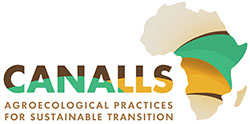As tropical agriculture intensifies to increase production for food security and competitiveness, the use of pesticides is increasing exponentially.
This increase raises questions about the "hidden costs" that pesticides generate for the environment (loss of biodiversity, water and soil pollution) and for people's health.
Additionally, it raises questions about the future access conditions for exported tropical products (bananas, cocoa, coffee, cotton, etc.), given the tightening of market access standards in terms of bans on the use of a growing number of molecules. It also prompts considerations regarding the opportunities for ecological intensification as an alternative to chemical pesticides, which can be activated by agro-ecological transitions. To answer these questions, CIRAD and Irad, supported by the Agropolis and Farm foundations, have launched an initiative to take stock of the risks associated with the use of pesticides and the barriers and levers that can be used to activate alternatives to meet the challenges of productivity and modernisation in tropical agriculture.
This initiative supports a number of exploratory research activities in various countries: Côte d'Ivoire, Cambodia, Latin America, the Caribbean and Cameroon. In Cameroon, over an 18-month period, it carried out surveys to characterise the institutional, organisational and stakeholder determinants that lead to the regulation of pesticide use, and to identify the work carried out by Cameroonian agronomic research and universities.
On November 7, 22023 CIRAD and IRAD organised a forum in Yaoundé, Cameroon to discuss the institutional and economic barriers and levers to regulating pesticide use and the pedoclimatic, agronomic and technical barriers and levers for reducing pesticide use. Eleven papers were presented, six of each topic. The forum was supported by the Agro-forestry Priority Initiatives of the CANALLS project and Santé des plantes (Agropolis Foundation) and Cts Santés (CIRAD).
It brought together more than 80 participants: Comité Inter-Etat d'homologation fr pesticides, FAO, African Union, GTZ, CGIAR, USAID, Universities (Yaoundé, Douala, Dschang, Ngaoundéré, Buéa) Ministries (agriculture, environment), Professional organisations (PROPAC, SOSECAO, Agro-PME, Cooperatives : cocoa and manioc), Civil Society Organisations (Camfas, Odeco, Cerca, Propac, Cpf, Cosader, SAILD, Cpcre), Companies (Agritech Consul).
At the forum, we discussed the paradox of reducing the use of pesticides in a low-use agricultural sector. The participants highlighted the various alternatives to pesticides that have been tried out or are being prototyped by Cameroonian research into ecological intensification: epidemio-surveillance, integrated pest management, farmer research schools on cocoa, biocontrol, biopesticides (trichoderma) and biofertilisers based on micro-organisms (overall plant health), agroecological innovations The discussion encompassed the economic aspects (such as price elasticities), regulatory and institutional mechanisms for regulating pesticide use in Central Africa were discussed



